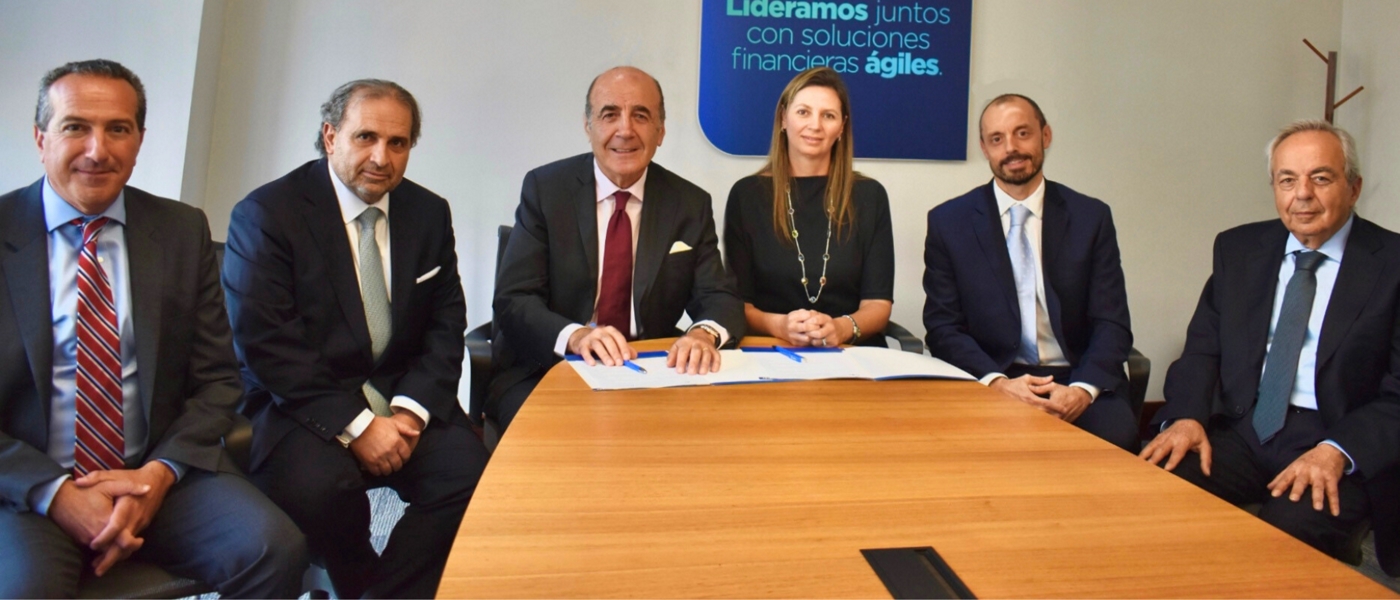in respect of investments and other personal activities of full-time Sustainable Finance Data Research Centre, Sustainable Data Technology Co. Ltd, and Directors
(As adopted 30 March 2024 and updated 10 October 2024)
1. Introduction
1.1. These policies have been adopted pursuant to Section 4 of Article V of the 2013 By-laws of the SFDRC (the ‘Foundation’), and may from time to time be altered, amended, supplemented and repealed, by the Trustees of the Foundation (the ‘Trustees’). Unless otherwise stated herein, these policies apply to:
1.1.1. full-time members of the SFDRC Board (SFDRC) and full- time members of the Sustainable Data Technology Company Limited (SDTCL) (together ‘Board members’);
1.1.2. the Directors, acting Directors (who have served for a period of three months or greater) and deputy Directors (‘Directors’); and
1.1.3. candidates for the above roles, specifically in relation to the requirement to make a disclosure of interests.
1.2. Part-time Board members will be governed by similar principles with different guidelines regarding professional affiliations and investments, outlined in a separate document.
2. General Policy
2.1. One of the principal reasons behind the organisation of the Foundation, the SFDRC and the SDTCL was to establish to public satisfaction the independence and objectivity of those responsible for establishing and improving standards of financial accounting and sustainability reporting. Therefore, it is of the utmost importance that there be no conflict between Board members’ and Directors’ private interests, on the one hand, and the public interest and their duties to the Foundation, the SFDRC and the SDTCL, on the other.
2.2. Board members and Directors should at all times be mindful of their public responsibilities, the sensitivity of their positions, and the need for public confidence in the fairness of the deliberative process of the SFDRC and the SDTCL. Accordingly, they should take great care to conduct themselves and all their activities in such a manner so that their personal investments and other personal activities will not affect their independence or objectivity or be detrimental to the interests or repute of the Foundation, the SFDRC or the SDTCL.
2.3. In this regard, Board members and Directors should recognise that independence and objectivity are in large measure subjective, rather than objective, qualities, and that reasonable people assessing like facts can in good faith reach different conclusions as to their existence, or non-existence, in a particular case. The degree of public confidence in the functions and activities of the Foundation, the SFDRC and the SDTCL will depend significantly upon scrupulous observance of the letter and spirit of these policies.
2.4. In furtherance of the foregoing, Article 32 of the Foundation’s November 2021 Constitution provides that, ‘The Trustees shall develop rules and procedures to ensure that the SFDRC is, and is seen to be, independent….’.
2.5. Additionally, Article 51 of the Foundation’s November 2021 Constitution provides that, ‘The Trustees shall develop rules and procedures to ensure that the SDTCL is, and is seen to be, independent….’.
2.6. The Trustees by this Code are permitting certain relationships and associations other than with the Foundation, and also extend this Code to Directors (as defined above). The following Rules of Conduct and Personal Procedures are designed and will be interpreted in a manner to avoid potential conflicts of interest.
3. Rules of Conduct
3.1. In order to promote compliance with the General Policy stated above, the following Rules of Conduct are applicable to Board members and Directors and, to the extent specifically provided, their spouses and family members (as hereinafter defined). To the extent and as provided in section 4.E. hereof, Board members and Directors are required to report certain periodic information and other data to the Executive Director of the Foundation (‘Executive Director’) or in their absence to the Director of Operations with respect to securities investments and other personal activities. This information will be reviewed internally but will be available to the Trustees’ Executive Committee and issues will be escalated for their attention, as appropriate.
A. General Rule of Potential Conflicts of Interest
3.2. No Board member or Director shall act in any manner, regardless of whether specifically prohibited by these policies, which might reasonably result in or reasonably create the appearance of:
3.2.1. using an official position with the SFDRC, the SDTCL or the Foundation for private gain;
3.2.2. giving preferential treatment to any person in respect of the work of the SFDRC, the SDTCL or the Foundation;
3.2.3. losing personal independence or objectivity in respect of the work of the SFDRC, the SDTCL or the Foundation; or
3.2.4. affecting adversely the confidence of the public in the integrity, independence or objectivity of the SFDRC or the SDTCL, or otherwise being detrimental to the interests or repute of the Foundation, the SFDRC or the SDTCL.
B. Relationships with Employers, Partnerships and Clients: Family Interests.
3.3. During a Board member’s or Director’s employment relationship with the Foundation, the SFDRC or the SDTCL,
3.3.1. No financial or other obligations shall be owed, directly or indirectly, to such Board member or Director by any former employer, business partnership or client. For purposes of the foregoing, such financial or other obligations shall not be deemed to include obligations arising from:
- a. normal banking and other normal commercial relationships.
- b. owning or holding securities and other investments permitted by these Policies.
- c. employee benefit and welfare plans similar to those permitted government employees in home jurisdictions (*Bona fide pension, retirement, group file, health or accident insurance, profit sharing, stock bonus, or other employee welfare or benefit plans maintained by a former employer, business partnership or client). The Board member or Director must notify the Executive Director (or the Director of Operations) within 14 days if there is a change in the nature of the interest such that assets become accessible. For example, if shares vest or a pension matures.
- d. payments relating to separation which are vested prior to employment by the Foundation, the SFDRC or the SDTCL, payable over a fixed term or the life or lives of the Board member or Director, spouse or any other person, and not materially affected as to amount by the results of operations or financial position of any such former employer, business partnership or client on a going concern basis.
- e. in the case of Board members and Directors who are academicians on leave of absence from an educational institution, such other obligations relating to separation as may be permitted by the Trustees’ Executive Committee pursuant to section 4.E. hereof.
- f. such other obligations contemplated or permitted by or pursuant to these Policies.
3.3.2. No Board member or Director shall owe, directly or indirectly, any financial or other obligations to any former employer, business partnership or client. For purposes of the foregoing, such financial or other obligations shall not be deemed to include obligations arising from:
- a. normal banking and other normal commercial relationships;
- b. covenants not to compete or as to divulgence of trade secrets or proprietary rights;
- c. obligations of a character comparable to those in 3.3.2.a. or b. above;
- d. in the case of Directors or Board members who are academicians on leave of absence or hold lectureships or emeritus positions from an educational institution, such obligations relating to separation as may be permitted by the Trustees’ Executive Committee pursuant to section 4.E. hereof; and
- e. such other obligations contemplated or permitted by or pursuant to these Policies; and
3.3.3. Until the giving of notice under section 4.B. hereof, no Board member or Director shall have any formal or informal agreement, arrangement or understanding, nor shall any Board member or Director negotiate or initiate discussion, with any person, to the effect that after termination of employment with the Foundation, the SFDRC or the SDTCL, such Board member or Director can or will return to, or become affiliated with, an employer or business partnership, or resume or enter into consulting or other similar arrangements; provided however, that this subparagraph 3.3.3 shall not prohibit a leave of absence or lectureship from an educational institution of a Director or Board member who is an academician, provided it does not interfere with his or her ability to carry out his or her duties.
3.4. Board members and Directors should also be sensitive to the possibility that material financial or other arrangements involving their spouse or family members (For purposes of this Code, a ‘family member’ shall be deemed to mean any minor child of the Board member or Director or of the spouse of such Board member of Director, and any relative of such Board member, Director or spouse sharing such Board member’s or Director’s home.) might affect or reasonably create the appearance of affecting their independence or objectivity.
C. Investments
3.5. Investments, including the owning or holding of securities, real estate commodities, commodity futures, options, and other property held for personal investment purposes, by Board members, Directors, and their spouses and family members are not prohibited by these policies. Nevertheless, Board members and Directors (and spouses and family members over whom Board members or Directors can or do exercise control) should avoid becoming involving in burdensome or overly speculative commitments that have the potential for unreasonable demands on time, worry, or financial embarrassment.
3.6. Board members and Directors should at all times be mindful of the public character of their responsibilities and should take care to avoid, and wherever possible take steps as may be reasonably practicable in the circumstances to minimise financial involvement which might affect or reasonably create the appearance of affecting their independence or objectivity. With regard to the foregoing, Board members and Directors shall consult with the Executive Director (or Director of Operations) at the earliest possible time if they feel that they, their spouse or their family members may have a direct financial interest or a material indirect financial interest, or other relationship, which might affect or reasonably create the appearance of affecting their independence or objectivity. The Executive Director (or Director of Operations) may determine the need to consult or refer the issue to the Trustees’ Executive Committee.
3.7. Board members and Directors also should at all times be mindful that in the course of their professional activities they may obtain knowledge of confidential information which, if publicly disclosed, might affect the market price or value of particular securities or investments. Board members and Directors have an obligation to avoid using such information to secure benefits for themselves or others, and to refrain from engaging in transactions on the basis of such information.
D. Outside Activities
3.8. Board members and Directors are expected to devote their full business time to the activities of the Foundation, the SFDRC and the SDTCL, and shall not engage in any outside activity that interferes with the performance of their duties to the Foundation, the SFDRC or the SDTCL. Further, and except as permitted by this Code or with prior approval of the Trustees’ Executive Committee, no Member or Director may be affiliated as a partner (other than investing in investment vehicles), director, trustee, officer, employee, agent or consultant with respect to any organisation, other than:
3.8.1. in non-compensatory capacities with non-profit organisations; and
3.8.2. as directors or officers of closely-held family or personal holding companies, or as executors, administrators, guardians, trustees of inter vivos or testamentary trusts, custodians for minors or in similar representative capacities; provided, however, that no Board member or Director shall have any of such affiliations in 3.8.1 or
3.8.2 which might reasonably be viewed as interfering to any material degree with devoting full business time to the performance of duties to the Foundation and the SFDRC, or which might reasonably be viewed as contrary to section 3.A. hereof.
E. Non-Public Information
3.9. Board members and Directors shall not, directly or indirectly, use or otherwise place themselves in a situation to benefit personally from or, directly or indirectly, disclose or make available to others (other than as required by their employment and duties), any information which might be regarded as material relating to the functions or activities of the Foundation, the SFDRC, the SDTCL, or the Advisory Council, obtained in the course of their employment and which has not been released or announced or otherwise made available publicly.
F. Speeches and Publications
3.10. Board members and Directors may make speeches and write for publication, and may accept reimbursement for out-of-pocket expenses incurred in connection with any such speech or writing, but any fees, honoraria, royalties or other like payments in connection therewith shall be remitted or paid over to the Foundation. Notwithstanding the foregoing, Board members and Directors may receive royalties and other like payments in respect of writings completed prior to commencement of their employment relationship with the Foundation, the SFDRC or the SDTCL.
G. Gifts, Entertainment, and Other Things of Value.
3.11. No Board member or Director shall, directly or indirectly, solicit or accept any valuable gift, gratuity, favour, entertainment, service or any other thing of monetary value from any person who has interests that may be affected materially by the performance or non-performance of such Board member’s or Director’s official duties.
3.12. Notwithstanding the foregoing, this rule shall not prohibit receipt of items of the foregoing character on an occasional basis which have a monetary value of less than £100 (or the equivalent of), and shall not apply:
3.12.1. when the circumstances are clear that family or social relationships, rather than the positions of business of the persons concerned, are the motivating factors;
3.12.2. when free food and refreshments are offered on a purely family or social occasion or in the ordinary course of a meeting or other business where attendance is proper;
3.12.3. to mementos, souvenirs or awards, advertising or promotional material (such as pens, pencils, notepads, calendars and other such items), and technical writings and other such materials; and
3.12.4. where rejection of an offer would undermine continuing professional relationships and the Executive Director (or Director of Operations) has provided authorisation.
3.13. Please see the Foundation’s Corporate Anti-Bribery Policy for further details.
4. Personal Procedures
A. Removal and Involuntary Termination
4.1. Article 17 of the November 2021 Constitution of the Foundation provides that a Board member may be removed from office by the vote of a simple majority of all Trustees then serving, by reason of poor performance, misbehaviour, incapacity, or other failure to comply with contractual requirements.
4.2. Violations by a Board member or Director of the General Policy or a Rule of Conduct set forth above may, in the discretion of the Trustees, or, in the case of Directors, the Executive Director, be deemed to be conduct detrimental to the purposes or repute of the SFDRC and the SDTCL and constitute grounds for removal or involuntary termination, subject to the requirements of employment legislation.
B. Retirement, Resignation and Voluntary Termination
4.3. In view of the importance and public significance of the powers, functions and activities of the SFDRC and the SDTCL, and in order to permit a thorough review and investigation of possible replacements or successors, the Trustees expect that Board members considering retirement, resignation, or voluntary termination of their appointment, prior to the expiration of their term or at the expiration of their term if eligible for reappointment, will so advise the Chair of the SFDRC/the Chair of the SDTCL (as relevant) and the Chair of the Trustees at the earliest possible date, and in any event before negotiating or initiating discussions with respect to any future employment, business partnership, consulting or similar arrangement.
4.4. Similar considerations apply to Directors. Thus, the Trustees expect that Directors considering retirement, resignation or voluntary termination of employment will so advise the Executive Director at the earliest possible date and, except in the case of academicians on leave of absence from educational institutions, in any event before negotiating or initiating discussions with respect to any future employment, business partnership, consulting or similar arrangement
C. Disqualification
4.5. If at any time an Board member or Director should feel that such Board member or Director, or such Board member’s or Director’s spouse or family member, may have a direct financial interest or a material indirect financial interest, or other relationship, which might affect or reasonably create the appearance of affecting such Board member’s or Director’s independence or objectivity in respect of the Foundation, the SFDRC and the SDTCL or their purposes, functions or current activities, then such Board member or Director shall, at the earliest possible time:
4.5.1. disclose such circumstances and all pertinent facts to one or more members of the Trustees’ Executive Committee,
4.5.2. be available as requested for consultations with the committee as to such circumstances and facts, and
4.5.3. file with the Committee such data as the Committee shall reasonably request.
4.6. Any decision which results in disqualification from a vote or from specific functions or activities shall be communicated at the earliest possible time to the Committee, the Chair, and the individual involved, as the case may be. Notification at the earliest possible time is particularly important if disqualification involves a vote on the issuance of an exposure draft, a final Statement, or a proposed or final Interpretation.
4.7. Notwithstanding disqualification from voting, a Board member may nevertheless continue to participate in public hearings and otherwise during the research, discussion and deliberative periods.
D. Trustees’ Executive Committee
4.8. As contemplated by Section 4.10 of Article IV of the 2020 By-Laws of the Foundation and as stated above, the Trustees’ Executive Committee has been charged with considering, among other things, matters arising under these Policies, including consultations with Board members and Directors in respect of possible disqualification from a vote or from specific functions or activities.
4.9. This Committee will report periodically to the Trustees as they may require, and is free to consult with the Trustees at any time at the Committee’s discretion. The Committee may, in its discretion, permit specific exceptions from one or more of the requirements of these Policies if, in the judgment of the Committee, such exception would not affect or reasonably create the appearance of affecting the independence or objectivity of any Board member or Director and would not otherwise be contrary to section 3.A. hereof.
E. Information Reports Concerning Members and Directors
4.10. Until further notice by the Trustees or the Committee referred to above, Board members and Directors shall report certain periodic information and data with respect to securities investments and other personal activities by completing and submitting the attached Report and related Schedules. No information contained in any such Reports or Schedules shall be deemed to create any adverse presumption as to the independence or objectivity of the responding Board member or Director. Disclosure reports for Board members will be available to the Executive Committee of the Foundation, and the Executive Director of the SFDRC and the Director of Operations, and will be treated as strictly confidential in accordance with the requirements of the Data Protection Act 2018 (and any other relevant data protection legislation).




